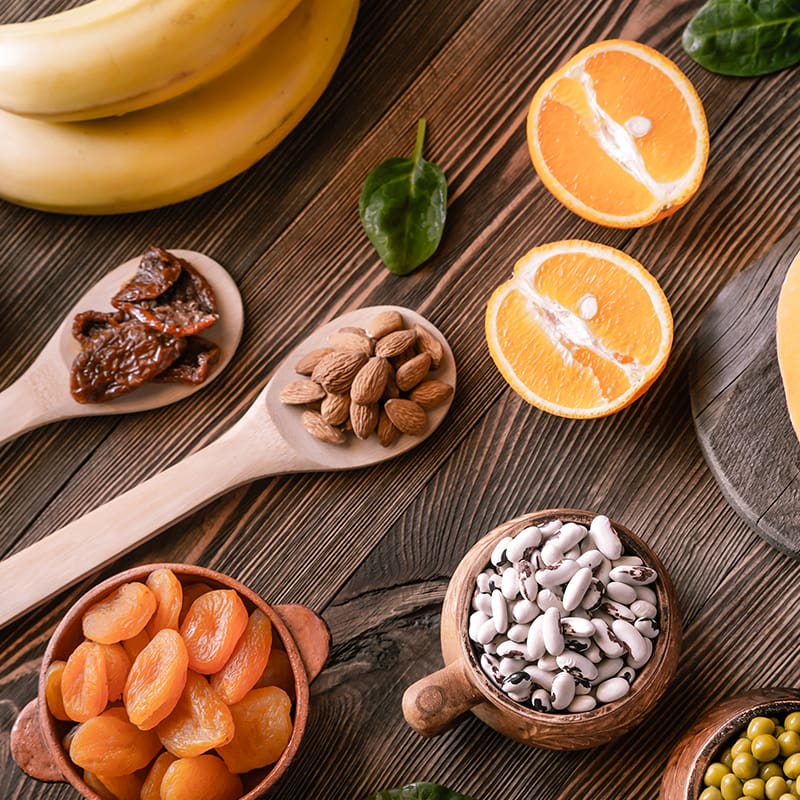5 Minerals You Should Want in Your Drinking Water

Water is an essential part of life, and we all know how important it is to drink plenty of it every day. But did you know that the quality of your water is just as important as the quantity? Drinking water that is rich in essential minerals can have numerous benefits for your health, including improving your immune system, aiding digestion, and boosting your energy levels.
However, if you rely on a store-bought water filtration system, you might run into a slight hiccup when it comes to the mineral content in your water. Many water filtration units and systems, while effectively removing harmful contaminants, also inadvertently strip drinking water of beneficial minerals and electrolytes. This is because these units typically use a method known as reverse osmosis, which pushes water through a semi-permeable membrane. While this process is excellent at getting rid of toxins, it doesn’t discriminate between harmful substances and healthy minerals. As a result, essential minerals such as calcium, potassium, and magnesium often get lost in the filtration process, leaving your drinking water less nutritious than it could be.
Thankfully, we’ve done our homework here at Office H2O, and we know this. That’s why our bottleless water coolers come with an electrolyte booster that puts these five essential minerals back into your drinking water. You’re not only left with pure, great-tasting drinking water – you’re left with healthier drinking water!
5 Minerals that Enhance Your Drinking Water
Calcium
Calcium is well-known for its importance in bone health, but did you know it also plays a critical role in other bodily functions? Adequate calcium intake is essential for properly functioning muscles, nerves, and the heart. Calcium also helps to regulate blood pressure and clotting. You may experience muscle cramps, fatigue, and weakened bones if you don’t get enough calcium. Drinking water that’s enriched with the right level of calcium can help you maintain healthy bones and muscles.
In addition to drinking water enriched with calcium, there are several other ways to make sure you’re getting enough of this essential mineral. Including calcium-rich foods in your diet, such as dairy products, leafy greens, and fortified cereals, is one of the most effective ways to meet your daily calcium requirements. Additionally, Vitamin D supplements can help enhance calcium absorption, and regular weight-bearing exercise promotes bone health, further ensuring you maintain adequate calcium levels in your body.
Magnesium
Magnesium is another essential mineral that plays a vital role in the overall health of your body. It is necessary for energy production, regulating blood sugar levels, and supporting the immune system. Magnesium also helps to promote healthy brain function and reduces the risk of depression and anxiety. You may experience muscle cramps, anxiety, and fatigue if you don’t consume enough magnesium. Drinking water enriched with just a splash of magnesium may also help to relax your muscles and improve sleep quality.
To ensure you’re getting enough magnesium in your diet, consider incorporating foods such as almonds, spinach, black beans, and avocados, all of which are rich in this essential mineral. A balanced diet is key. Additionally, you can opt for supplements, but remember to consult a healthcare professional before starting any supplement regimen, as too much magnesium can lead to adverse effects. Regular exercise can also help promote magnesium absorption, contributing to overall well-being.
Potassium
Potassium is critical for maintaining healthy blood pressure and heart function. It also supports nerve and muscle function and aids in the digestion and absorption of food. Low potassium levels can lead to irregular heartbeat, weakness, and fatigue. Drinking water with the right potassium levels can help replenish your body’s stores and maintain healthy blood pressure levels.

Incorporating potassium-rich foods in your diet is another good way to meet your potassium needs. Foods like bananas, sweet potatoes, white beans, and spinach are excellent sources of potassium. Consuming these foods regularly will not only aid in maintaining a healthy potassium level but also contribute to a balanced diet. Alternatively, if necessary, potassium supplements may be taken under medical supervision.
Zinc
Zinc is an essential mineral that supports the immune system and aids in wound healing. It also helps to support healthy brain function, regulates hormone levels, and promotes healthy skin and hair. Low zinc levels can lead to a weak immune system, slow-healing wounds, and hair loss. Drinking water with high levels of zinc can help support your immune system and promote healthy skin and hair.
In addition to drinking mineral-enriched water, there are other ways to ensure you’re getting enough zinc in your diet. You can consume zinc-rich foods such as meat, shellfish, legumes, seeds, nuts, dairy, eggs, and whole grains. Supplements are also an option for those who struggle to get enough zinc through diet alone, but be sure to consult a healthcare provider before starting any new supplement regime.
Iron
Iron is essential for carrying oxygen throughout the body, and it plays a critical role in maintaining energy levels and supporting the immune system. Iron is also essential for healthy hair, skin, and nails. Low iron levels can lead to anemia, which can cause fatigue, weakness, and shortness of breath. Drinking water that’s been enhanced with the right levels of iron can help to support healthy blood cell production and maintain energy levels.
Your body can absorb iron from a variety of dietary sources. Red meats, seafood, and poultry are particularly rich in heme iron, a form of iron that’s easily absorbed by the body. Vegetables and iron-fortified foods provide non-heme iron, a less readily absorbed form, but still crucial for maintaining healthy iron levels. Consuming vitamin C-rich foods alongside iron-rich foods can enhance your body’s absorption of iron. Iron supplements can also be considered under the guidance of a healthcare provider, especially for those with an iron deficit or specific dietary restrictions.
Risks of Overconsumption of Essential Minerals
While essential minerals are crucial for your body’s overall health, it’s also important to understand that consuming too much can have adverse effects. Moderation is key, and it’s crucial to balance deficiency and excess.

- Calcium: Overconsumption of calcium can lead to hypercalcemia, a condition marked by higher-than-normal calcium levels in the blood. This can result in kidney stones, kidney failure, and calcification of organs and soft tissues.
- Magnesium: Ingesting too much magnesium, especially in supplement form, can lead to diarrhea, nausea, abdominal cramping, and, in severe cases, irregular heartbeat and cardiac arrest.
- Potassium: High potassium levels in the body, or hyperkalemia, can lead to irregular heart rhythms, palpitations, and, in extreme cases, heart failure.
- Zinc: Consuming too much zinc can lead to nausea, vomiting, loss of appetite, stomach cramps, diarrhea, and headaches. Over time, high zinc levels may lead to lower immunity and low levels of HDL (good) cholesterol.
- Iron: Iron overload can cause a condition known as hemochromatosis, which can lead to serious health problems such as liver disease, heart problems, and diabetes.
Remember, balance is the mantra when it comes to minerals in your diet. Always consult with a healthcare professional before starting any supplement regimen, and aim to get these essential minerals primarily from a balanced, nutritious diet.
Let’s Enhance Your Drinking Water Experience
Drinking water that is rich in essential minerals is important for maintaining optimal health. Adequate calcium, magnesium, potassium, zinc, and iron intake is necessary for many bodily functions, including bone health, energy production, immune function, and regulating blood pressure. If you’re a business owner, offering your employees the cleanest, purest drinking water is always a good thing! So, when you want to ensure they have the best, contact Office H2O.
Our bottleless water and ice coolers eliminate 99% of the harmful chemicals and solubles and replace these essential minerals for a more elevated and enjoyable drinking experience! Get your free 7-day trial started today!
